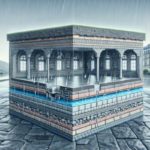When it comes to choosing the ideal hot water system for your household, it is essential to take into account several factors that extend beyond basic functionality. Modern systems prioritise energy efficiency, deliver substantial long-term savings, and are designed to integrate seamlessly with innovative technologies, such as solar power and smart home solutions. For homeowners residing in Queensland, the decision-making process often hinges on two particularly favoured options: solar hot water systems and heat pumps. Gaining a comprehensive understanding of the advantages and features of these systems can empower you to make a well-informed choice that aligns with your specific household requirements.
Both alternatives present energy-efficient options when compared to conventional electric storage or gas systems. However, they operate differently and cater to varying household needs, climatic conditions, and financial considerations. In this article, we will conduct an in-depth analysis of the distinctive characteristics of each system and underscore the increasing popularity of heat pump systems as the preferred choice for homeowners pursuing efficiency and cost-effectiveness.

Unpacking the Functionality of Solar Hot Water and Heat Pump Systems
Understanding Solar Hot Water Systems
Solar hot water systems harness the sun's energy through specially designed collectors that are mounted on the roof. This harnessed solar energy is subsequently utilised to heat water stored in a dedicated tank, providing an environmentally-friendly hot water solution for your home. Most systems also feature a backup heating mechanism, either electric or gas, ensuring a consistent supply of hot water during overcast days or peak demand periods, thereby maintaining comfort and convenience for your household.
Explaining Heat Pump Hot Water Systems
In contrast to solar hot water systems, heat pumps function independently of direct sunlight. These systems extract heat from the surrounding air using a refrigeration cycle, transferring this heat into the water stored within a tank. This process is akin to the reverse operation of an air conditioning unit. Additionally, heat pump systems do not require any rooftop components, simplifying their installation and making them accessible to a broader range of homes.
Evaluating the Efficiency and Performance of Hot Water Systems
| Factor | Solar Hot Water | Heat Pump System |
|---|---|---|
| Requires direct sunlight | ✓ | ✗ |
| Operates effectively in shaded areas | ✗ | ✓ |
| Available for night-time use | ✗ | ✓ |
| Requires roof space for installation | ✓ | ✗ |
| Consistent performance in winter | ✗ | ✓ (in QLD climates) |
| Eligible for STCs/rebates | ✓ | ✓ |
| Compatible with solar PV systems | ✗ (standalone) | ✓ |
Note: In the warm climate of Queensland, heat pumps typically maintain high efficiency throughout the year, making them a reliable and practical choice for homeowners.
Essential Installation and Maintenance Tips for Hot Water Systems
Installing solar hot water systems necessitates meticulous planning, particularly regarding the strategic placement of collectors on your roof. This process can become intricate, especially for older homes or those with limited access to roof areas. Factors such as shading, roof orientation, and pitch play a critical role in influencing performance, making comprehensive planning indispensable. Furthermore, the positioning of the tank and associated plumbing can limit configuration options, resulting in a more complex installation compared to other systems.
On the other hand, heat pumps are generally installed on the ground and are available in integrated or split systems. They occupy a footprint similar to that of a conventional electric tank, removing the need for rooftop components, which streamlines the installation process and makes it more accessible for homeowners. Additionally, maintenance for heat pumps tends to be less complicated, as they are less exposed to UV rays and harsh weather conditions, thereby lowering the frequency and costs associated with upkeep.
Maximise Your Financial Savings by Choosing the Optimal Hot Water System
Both solar hot water systems and heat pumps have the potential to significantly reduce energy bills. However, heat pumps frequently provide greater savings for households that:
- Experience limited sunlight during the day and require a dependable hot water source
- Utilise hot water during early mornings or late evenings when energy costs tend to be higher
- Already have rooftop solar PV systems and aim to maximise their energy self-consumption
- Prefer to avoid reliance on roof structures or are hesitant to penetrate roof tiles
Since heat pumps operate using electricity, they can be programmed to function during peak solar generation hours. This flexibility makes them an ideal companion to existing solar panel systems. Rather than exporting surplus energy at a reduced feed-in tariff, homeowners can directly utilise their solar power to efficiently heat water, maximising both cost-effectiveness and energy savings.
Understanding Upfront Costs and Available Rebates for Hot Water Systems
Both solar hot water systems and heat pumps qualify for Small-scale Technology Certificates (STCs), which can substantially decrease the purchase price, making them more affordable for homeowners. The availability of STCs is influenced by various factors, including geographical location, system size, and efficiency ratings. Moreover, heat pump systems may qualify for specific rebates in Queensland under the Energy Efficient Communities Program, which vary based on household characteristics and the type of installation.
To navigate these rebate options effectively, it is strongly recommended to consult with a qualified installer such as Creek to Coast Plumbing. Their expertise can provide invaluable guidance on eligible systems and efficiently manage the rebate application process, ensuring that you benefit from all available savings as part of the installation service.
Choosing the Optimal Hot Water System for Queensland Homes
In the coastal regions of Queensland, including the Sunshine Coast and Moreton Bay, heat pumps often surpass solar hot water systems regarding consistent performance, ease of installation, and compatibility with solar energy technologies. They are particularly beneficial for homes that experience shading or have partially sunny conditions, and are especially effective in residences equipped with battery storage or smart controllers that optimise energy consumption.

Assessing the Best Options for Hot Water Systems
While solar hot water systems continue to hold their significance, particularly in homes with unobstructed, north-facing roofs that have substantial daily hot water requirements, heat pump systems present a more versatile and comprehensive solution for numerous homeowners across Queensland. They deliver dependable performance, simplified installation processes, and seamless integration with existing solar PV systems, rendering them a valuable investment for energy-conscious homeowners.
If you are considering an upgrade, we encourage you to visit our Heat Pump Hot Water Systems Installation Page for further information or to request a customised quote tailored to your specific needs.
The Article: Heat Pumps vs Solar Hot Water: Which is Superior? first appeared on https://writebuff.com
The Article Heat Pumps vs. Solar Hot Water: A Comparison of Efficiency Was Found On https://limitsofstrategy.com



